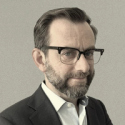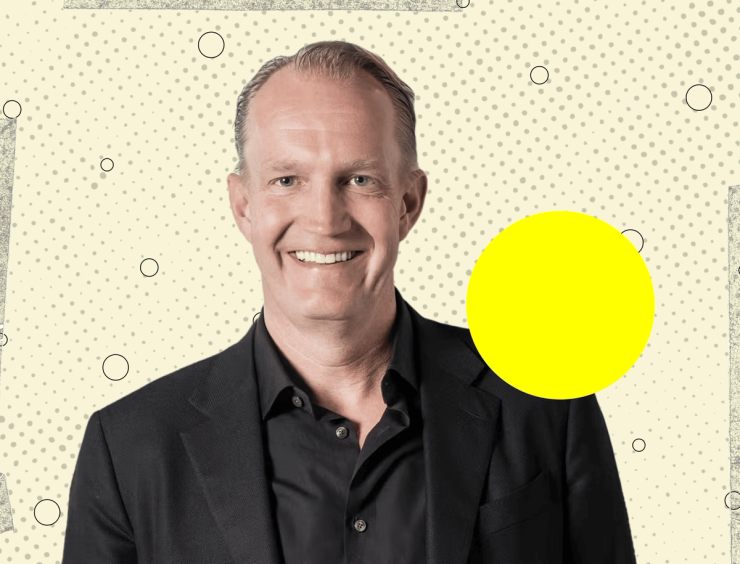The Signal Insight
When Per Franzén joined EQT Partners in 2007, it was a Swedish buyout firm with about 120 employees. When he succeeded Christian Sinding as its CEO last May, he found himself running a 2,000-person business with operations in 26 countries, a market capitalization exceeding $30 billion, and more than $300 billion of assets under management.
EQT is now the largest private equity firm outside the US, but almost 40% of its investments this year have been in North America. Already one of the largest players in the US infrastructure market, it plans to spend $250 billion over the next five years, roughly doubling its pace of investments to build its position in the home market of private capital giants such as KKR and Blackstone.
Franzén believes, as do some of his peers, that EQT’s industry is about to go through a wave of consolidation. And he intends to “actively participate” in that process, with some discussions already underway.
Backed by Sweden’s Wallenberg family and listed on the Nasdaq Stockholm, EQT has been one of the most active private markets firms in global equity capital markets this year. Here’s how Franzén sees those markets, and EQT’s place in them.
This interview has been condensed and edited for clarity.
Andrew Edgecliffe-Johnson: You became CEO in May. What mandate did the board give you, and what vision did you present?
Per Franzén: EQT always had a vision of creating an institution that would outlive the founders. And I’m deeply committed to that journey, to continuing to build the most attractive platform in the private markets industry that continues to deliver for clients and for investors. My job is to set EQT up in the best possible way for the next phase of this journey.
Since our listing in 2019, we’ve grown significantly. And whenever you have that type of growth, there’s always an opportunity to take a step back and ask yourself, “Do we have the right set-up going forward?” That’s been my initial focus, to ensure that we have very clear governance and the right organizational design to capture this opportunity. We reduced the size of the leadership team, because whenever you’ve had that type of growth, a little bit of complexity creeps in.
You were at the center of the succession planning process. What do you think matters most in getting it right?
First of all, that you have a plan and that you put this on the agenda, which most firms don’t do. The reason why we’ve been successful at [succession planning] is because we put it on the agenda. Governance in the EQT operating model, the way we run our portfolio companies, is our religion. So it would be very odd if we’re not leading by example ourselves.
Three-and-a-half years ago, I was appointed deputy managing partner and that was the start of the transition planning. Of course, I never knew for certain that I would become CEO, [but] I had time to work with myself to try to become a better leader, to think about and reflect on what I would do if I got the question.
What does that work look like? How do you prepare for a role like this?
I worked with the best coaching I could get to try to develop my leadership style. I asked myself: What do I believe, and what are my values? How do I want to lead? So you’re mentally prepared to take the right decisions early on in your leadership to maximize your impact, because every single day that you wait, you lose time.
Then I had the privilege to work with some of our most successful CEOs in [EQT] portfolio companies. Now I can ask them for advice, because the CEO role is very, very lonely. Everyone’s just looking at you and you want to lead with clarity and confidence, so to have that type of sounding board and network around is very helpful.
EQT has a 30-year history in Europe and a sizable business in Asia. How do you maintain a differentiation in the US?
We’re one of a handful of scale players in the industry, and we believe that scale will matter going forward to be able to continue to perform for investors. Relatively speaking, we’re much smaller compared to the very strong US incumbents. But the way we look at it, it’s a huge opportunity for us. [The US] is the largest part of the private markets in the world. We’re the largest in Asia and Europe. We’re going to benefit, we believe, significantly, in the near term, from private-and public-market investors rebalancing their portfolios outside of US dollar-based assets.
EQT’s outgoing chair, Conni Jonsson, suggested this year that M&A might play a part in your US expansion plans. Are you actively discussing anything in the US right now?
We believe that this industry is going to consolidate and we believe that the consolidation will only accelerate. Right now we have a number of ongoing live discussions with players in the industry, both in our existing business lines and to fill gaps in the platform. That might or might not lead to transactions, but we definitely have the ambition to continue to actively participate in the consolidation of this industry. We could do acquisitions of $10 billion if we wanted to; we have the balance sheet to do that.
Do you still see Europe as a good place to invest? Or is your interest in the US partly reflecting a funk in your home market?
No. We look at our private market portfolio, and Europe has performed better for us. And it’s because we have all these inefficiencies in Europe — that allows [EQT], with its local presence, to unlock attractive opportunities. Now, do we expect Europe to outperform the US as an economy over the next five to 10 years? The answer is I don’t, personally. Do I expect the outperformance of the US to be as big over the next five to 10 years as it’s been over the last five to 10 years? I don’t think so. So relatively speaking, the gap will shrink a little bit.
Investors globally still believe in the momentum and in the innovative drive in the US economy. But there’s been a mindset shift where investors say, “Even if I believe in that, I don’t want to have all of my eggs in the US basket, so I’m going to put more capital to work across Europe and across Asia. That’s what we will benefit from.”
As you scan the risk horizon, what do you pay most attention to?
We’re constantly monitoring the credit markets, of course, [and] financing markets. And we have asked all of our portfolio companies, all of our deal teams, to prepare backup plans, in case the credit cycle turns. We don’t actually expect a near-term big correction and I don’t see any systemic risks in the credit markets right now, but it’s just good sound business. In certain parts of the global financing markets, there might have been pockets of complacency in terms of underwriting standards, but we don’t see any systemic risk at this point.
What about an AI bubble? Are we in one?
Whenever there’s big technology shifts, like the one that we’re seeing now with AI, there’s always a risk that valuation levels in that area become excessive. But when it comes to AI, we like to be invested in this trend. It’s one of the most attractive themes of our generation.
Notable
- Franzén also says EQT could roughly double its investments in Europe over the next five years, to €250 billion ($290 billion) — but committing any more than that will depend on the EU removing the barriers that prevent startups from scaling, he wrote this week.
- Partners Group’s CEO predicts that 11,000 private-equity firms could whittle to as few as 100 “next generation platforms” over the next decade. It’s a sign of how firms that were once Wall Street’s disruptors have turned into its establishment, Liz Hoffman notes.


